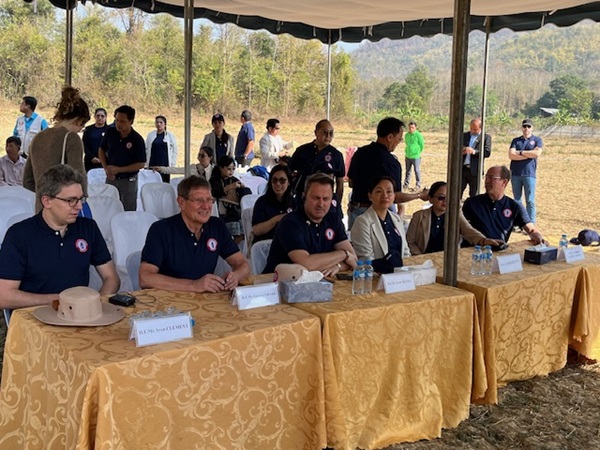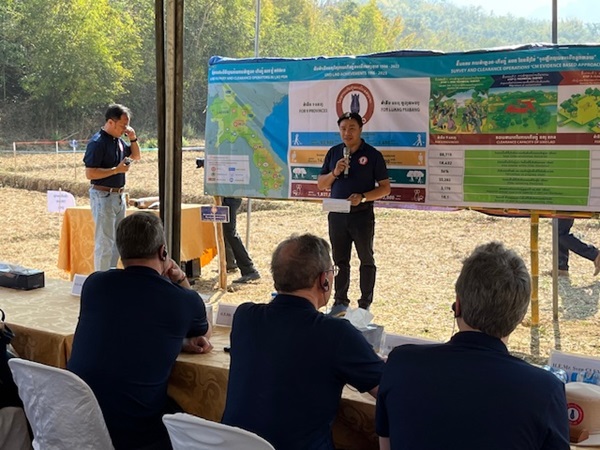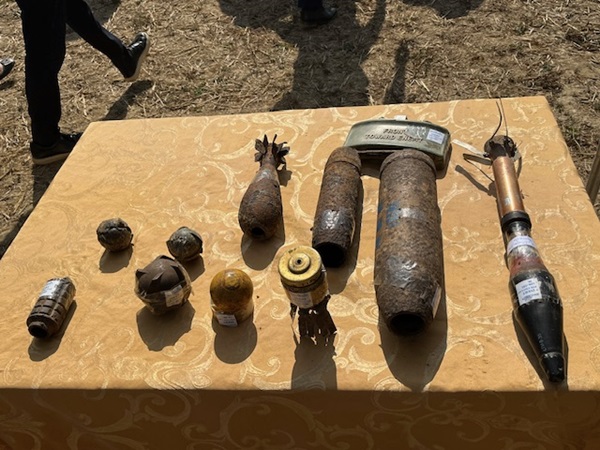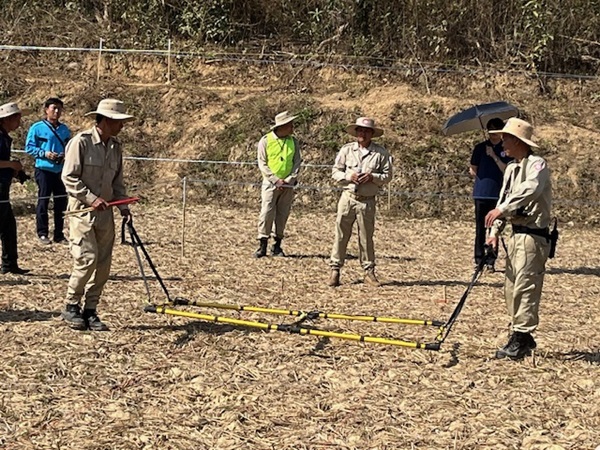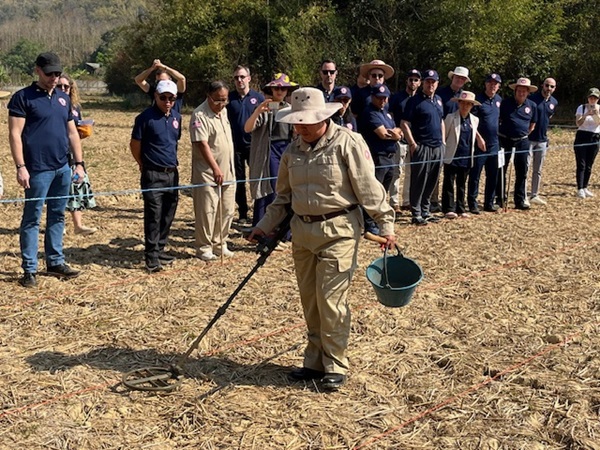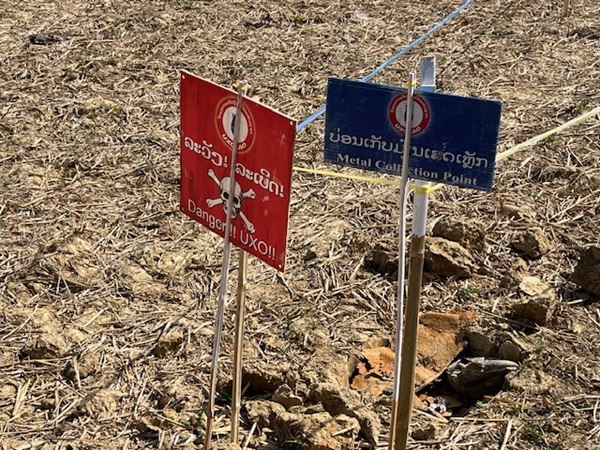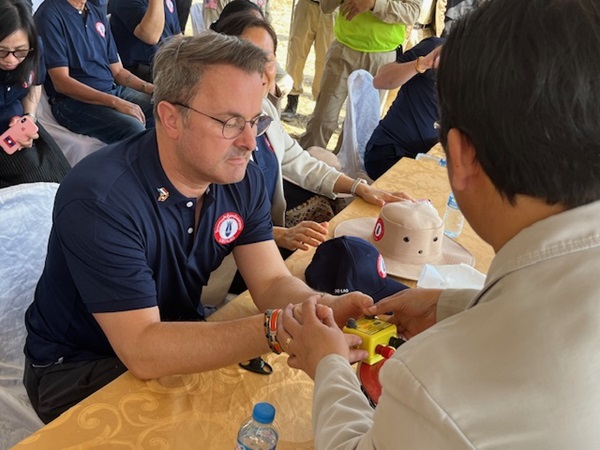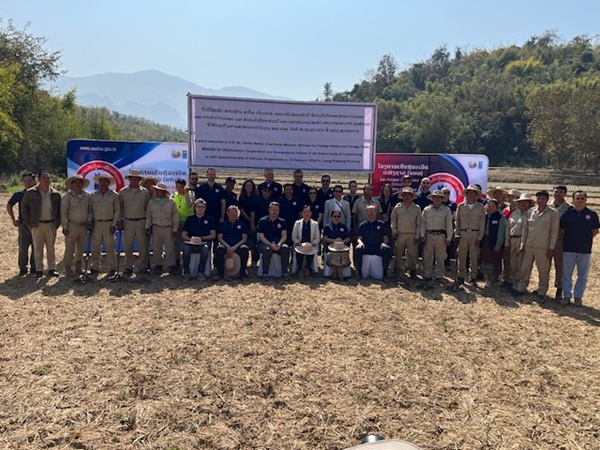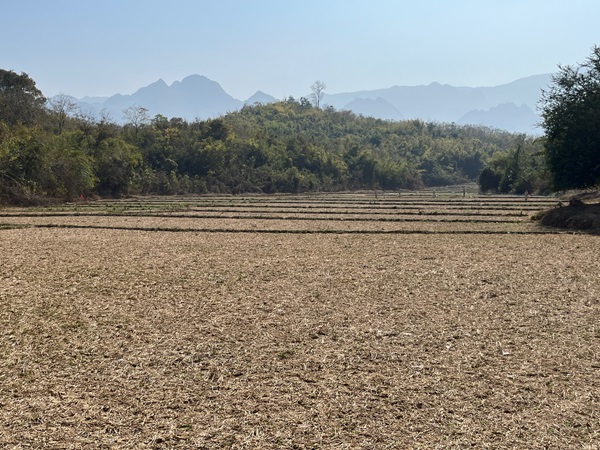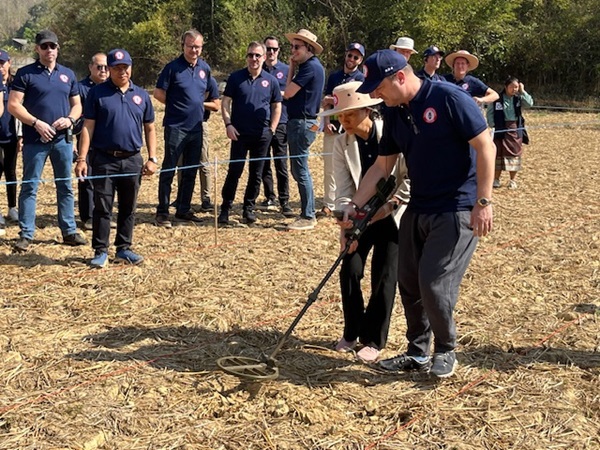 Minister Bettel at a demining site near Luang Prabang, Laos;
Minister Bettel at a demining site near Luang Prabang, Laos;
On Tuesday 6 February 2024, day two of Luxembourg's Minister for Development Cooperation and Humanitarian Affairs, Xaviel Bettel, visit to Laos in south-east Asia, the visit saw the minister and delegation visit a demining site in the morning.
Demining Site
A 40-minute drive from the hotel in Luang Prabang, the vast majority along unpaved roads in hilly terrain, the demining site was located at the Pick Yay village, in the Luang Prabang province. Accompanied by Laos' Minister of Labour and Social Welfare, Mrs Baykham Khattiya, and the Deputy National Programme Director of UXO LAO, Saomany Manivong, they received a briefing on UXO (unexploded ordnance) action in Laos in general, as well as another focussing on the UXO clearance operation in Pick Yay village.
The Laos National Unexploded Ordnance Programme (UXO Lab) was established in 1996 by the government of Laos with the support of UNDP, UNICEF and other stakeholders; it works in nine of the most contaminated provinces in Laos. Its mandate is primarily to reduce the number of UXO-related accidents and casualties, and to increase the amount of safe land available for food production and other socio-economic development.
UXO Laos receives funds from the UNDP as well as from bilateral donors including Luxembourg, the US, Japan and New Zealand. Currently Luxembourg is providing funding support to UXO Laos with a focus on Khammouane province, where UXO is working with four operational teams including two area clearance teams, one technical survey team and one explosive ordnance risk education team.
Per capita, LAOS is the most heavily bombed country in the world. Over two million tonnes of bombs were dropped on the country between 1964 and 1973 (it was indirectly involved in the Vietnam War (1955-1975) as around two million tons of ordnance (including over 270 million cluster munitions, of which 80 million failed to detonate) were dropped from the air which landed on Laos soil, literally. The country has over 2,400 staff working on the UXO initiative which started in 1996. In one province, 53,900 hectares have been cleared; at this site, they have cleared more than 3,600 hectares of land following clearing 192,000 bombs. He explained that the first step is to undertake a survey of the evidence of bombs in an area which could be 5-6 hectares, to determine the advocacy / risk. The next step is clearing the unexploded bombs, the entire process can take years. In this site, 21% of the area has already been cleared. He confirmed that eleven countries, including Luxembourg, support Laos in this context, together with nine international organisations, including the UNDP. For 2024, they plan to visit 426 villages, survey 138 of these villages (5,150 hectares) and clear 3,170 hectares.
This clearance team comprises ten members, nine men and one woman, plus one vehicle. The current area houses around 100 families; the team has destroyed over 1,600 bombs, some of them cluster bombs; they expect to be completed later this month.
In a discussion following the presentation, Minister Bettel raised the issue of how cruel humans are, and referenced what Russia is currently doing in Ukraine. He asked how do villagers know if lands have been controlled, or not. The response was that the owner of the land is advised and they receive a certificate from the village to state that it is clear of bombs. He asked if they have figures on victims; last year there were 40 incidents with 300 victims and this year three people have died. In total 11,160 people have lost their lives. They expect that all the lands will not be cleared for another 20 years.
In a question from Chronicle.lu, it was explained that the focus has been on clearing arable land, rather than forested areas, most of which are on rough terrain, as this is the most pressing need, i.e. to make it safe for farmers and agriculture. He also explained that there are four levels of training for units such as his; initial training is just four weeks, with 3-4 years to get up a level (of seniority), then another 3-4 years to get to the third level, with another period to become a senior.
The delegation then visited an area a couple of hundred metres away in which three unexploded bombs had been discovered. Shortly afterwards, back at the presentation area, following a five-step safety check, Minister Bettel pressed the switch to detonate three bombs safely from a 280m distance.
After lunch, the delegation took a high-speed train trip to Vang Vieng.

